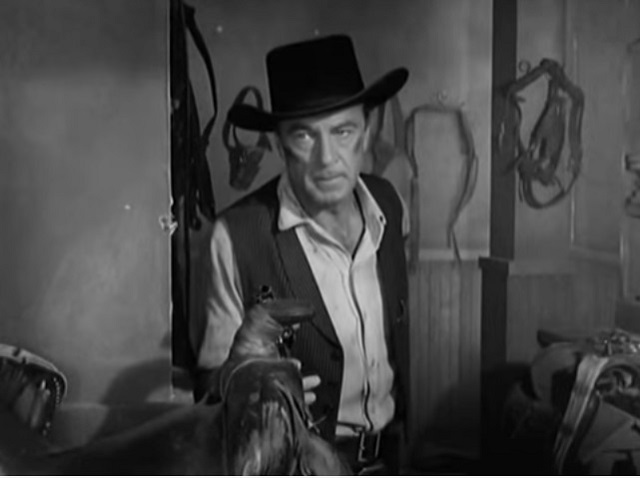
Recently, I had an experience—it wasn’t particularly remarkable at the time—but it has hung with me, causing me to think about the lessons that can be learned from seemingly meaningless moments.
Growing up in the 60s and 70s, I often found my heroes in the western movies playing on Saturday morning television. Gary Cooper in High Noon. Clint Eastwood in Hang’em High. John Wayne in—everything.
In the 80s, my fascination with cowboy swagger morphed into an affinity for action-hero images of Sylvester Stallone, Arnold Schwarzenegger and Bruce Willis single-handedly dispatching bad guys. They were strong, capable, fearless—without recognizing it, these films were both reflecting and shaping my sense of manhood.
I’m certain the impact of entertainment and media on women is just as powerful. I’m just not qualified to comment on it. That recognition is probably worth exploring, and is likely a lesson for all us with a Y chromosome, but for now let’s stick to becoming more mindful of the unseen forces that shape us. Being more mindful of these forces can liberate us from the mental constructs that often keep us from breakthroughs in our work and our relationships.
So what about my experience, this little epiphany of enlightenment?
While having lunch with a friend, I asked him a simple question about something important to me. The details don’t matter—what matters is I felt a little trepidation, even though there wasn’t much at stake here other than the potential for a brief moment of rejection if he had been unwilling to help. The good news is he was more than happy to help me and wondered why I hadn’t asked him sooner. I didn’t have a good answer, but his question prompted me to ask myself the same question.
But…”real men” don’t need help, right? Which brings me back to my heroes.
On some level, asking for help seemed risky. Vulnerable. I don’t do vulnerable much. John Wayne and Arnold don’t do vulnerable. Neither does Bruce Willis. They handle stuff. They know what to do. They shoot guns and blow up things. They respond to danger with a grin and spit unforgettable one-liners with ease.
“Go ahead, make my day.”
“Yippee-ki-yay, mother-f*cker.”
“I’ll be back.”
My point here isn’t to judge the mythology of film, television or even literature. It’s to help us all become more aware what impact these may be having on our choices. We recognize, I hope, that advertising is designed to create a need in us. If we pay attention, we can see it isn’t benign—but neither are our entertainment choices.
The good news is we don’t have to give up watching our favorite actors or actresses. We don’t have to let go of all our social mythology. But there are a few practical things we can do avoid having our mental blindspots from being reinforced. So what are they?
First, we need to recognize when we are watching or reading fiction. Whether the film deals with relationships, global conflict, history, despair or greed, these works contain both truth and error. They are fictional, but they are not without a perspective. The telling of a great story requires perspective—it requires the writer, directors and actors to take a position about what is good and what is bad. Being mindful of that perspective is important if we are to avoid the delusion that could result if we don’t.
Second, we can take some time to meditate on the perspective of the film, show or book. We can reflect on which characters reinforce healthy perspectives and which ones don’t. We can consider which emotions they stir up in us and wonder why they do so. It doesn’t require hours of effort. Most of us don’t watch or read in a vacuum. We read books others have read. We don’t usually go to the movies alone. We can simply ask one another something other than the question, “Did you enjoy it?” We can wonder how they limit or reinforce our view of the world, our experience and even why we might not ask for help.
Third, when we walk through our day, we can be mindful of how our own experience bias might be reinforced by the film, or how it might affect the decisions we make in our work, our relationships and our communities. Entertainment can reinforce how we think we should behave, how we should meet others expectations, or even the expectations we have of ourselves. It can also burden us to place those expectations on others. As we subtly place ourselves in the position of an expert, we unwittingly limit our options and our freedom.
Finally, we should read literature and watch films that might contain perspectives with which we disagree, or that we might otherwise not include in our entertainment choices. Stories that contain a “morality play” with which we are uncomfortable can help us grow. But we have to approach them deliberately, with humility and openness. We don’t have to agree with the message, but if we are unwilling to be gently challenged, talk only to people who agree with us or fail to think deeply about what has shaped us, we are destined to remain locked within prisons of judgment, condemnation and fear, confined by walls of our own construction.
Although it is a grand departure from the movie heroes I had as a child and young man, I’ve found a new hero in the Will Ferrell movie, Elf. The child-like faith of Buddy is inspiring. The incongruity of a grown man in green tights is hilarious. And I like smiling. It’s my favorite.
Buddy seems to have a complete lack of self-awareness, which means he can eat maple syrup-laden spaghetti. It means he can dance with reckless abandon. He can celebrate the world’s best cup of coffee. It means he can fall in love with (and be loved by) a woman he “shouldn’t.” Buddy teaches me things when when I don’t expect it. Almost all entertainment does. Some of it good, and some of it not so good. It turns out that the Willie Nelson song, “My Heroes Have Always Been Cowboys,” may need a little revision.
Sometimes, my heroes are elves.
~
Author: Jim Owens
Image: screenshot
Editor: Yoli Ramazzina






Read 0 comments and reply